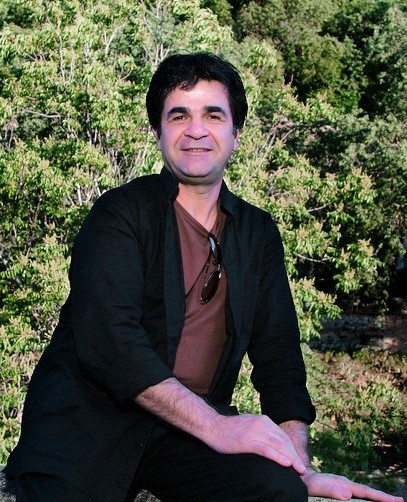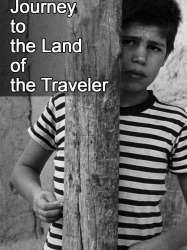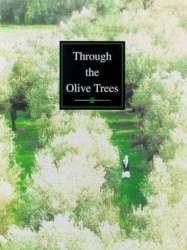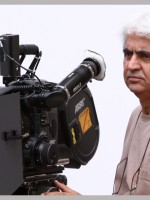Jafar Panahi is a Actor, Director, Scriptwriter, Producer, Assistant Director, Director of Photography, Editor and Cinematography Iranien born on 11 july 1960 at Meyaneh (Iran)

Jafar Panahi (Persian: جعفر پناهی; born 11 July 1960) is an Iranian film director, screenwriter, and film editor, commonly identified with the Iranian New Wave film movement. After several years of making short films and working as an assistant director for fellow Iranian film-maker Abbas Kiarostami, Panahi achieved international recognition with his feature film debut, The White Balloon (1995). The film won the Caméra d'Or at the 1995 Cannes Film Festival, the first major award won by an Iranian film at Cannes.
Panahi was quickly recognized as one of the most influential film-makers in Iran. Although his films were often banned in his own country, he continued to receive international acclaim from film theorists and critics and has won numerous awards, including the Golden Leopard at the Locarno International Film Festival for The Mirror (1997), the Golden Lion at the Venice Film Festival for The Circle (2000), and the Silver Bear for Best Director at the Berlin Film Festival for Offside (2006 ). His films are known for their humanistic perspective on life in Iran, often focusing on the hardships of children, the impoverished, and women. Hamid Dabashi has written, "Panahi does not do as he is told — in fact he has made a successful career in not doing as he is told."
After several years of conflict with the Iranian government over the content of his films (including several short-term arrests), Panahi was arrested in March 2010 along with his wife, daughter, and 15 friends and later charged with propaganda against the Iranian government. Despite support from filmmakers, film organizations, and human rights organizations from around the world, in December 2010 Panahi was sentenced to a six-year jail sentence and a 20-year ban on directing any movies, writing screenplays, giving any form of interview with Iranian or foreign media, or from leaving the country except for medical treatment or going to Hajj pilgrimage. Whilst awaiting the result of an appeal he made This Is Not a Film (2011), a documentary feature in the form of a video diary in spite of the legal ramifications of his arrest. It was smuggled out of Iran in a Flash-Drive hidden inside a cake and shown at the 2011 Cannes Film Festival. In February 2013 the 63rd Berlin International Film Festival showed Closed Curtain (Pardé) by Panahi and Kambuzia Partovi in competition; Panahi won the Silver Bear for Best Script.
Après avoir étudié la réalisation de films à l'Université de Cinéma et de Télévision à Téhéran, Panahi fait plusieurs films pour la télévision iranienne et devient l'assistant réalisateur d'Abbas Kiarostami sur Au travers des oliviers. Son premier long métrage de cinéma, Le Ballon blanc, est récompensé par la Caméra d'or au Festival de Cannes 1995.
En 2001 il fait partie du jury du 36e Festival international du film de Karlovy Vary.
Ses deux films à charge sur les inégalités et l'absence de liberté dans la société iranienne : Le Cercle (Dayereh, Lion d'or à Venise en 2000) et Sang et Or (Talāye sorkh, Prix du jury Un certain regard en 2003), ont été interdits par le gouvernement de la République islamique d'Iran à cause de leurs sujets. Ainsi, Le Cercle traite de la condition des femmes dans la république islamique d'Iran et en particulier de la prostitution, et Sang et Or raconte l'histoire d'un vétéran de la guerre avec l'Irak confronté à l'injustice sociale.
Le régime interdit également la sortie en salles de Hors jeu (Offside) — Ours d'argent à Berlin en 2006 — qui dénonce la place réservée aux femmes dans son pays. En effet, ce film traite de la fronde des Iraniennes, fans de football, assistant clandestinement aux matches, en contournant l'interdiction faite aux femmes, depuis la révolution islamique de 1979, de pénétrer dans les stades lors des matchs opposant des équipes masculines. Cependant, ce film connaît le succès en Iran grâce aux copies DVD diffusées, en partie clandestinement, dans tout le pays.
Alors que les œuvres de Panahi sont systématiquement primées dans les grands festivals internationaux, elles sont aujourd'hui interdites dans son propre pays, même si elles sont distribuées sous forme de DVD, vendus au marché noir. Il inspire toute une nouvelle génération de cinéastes iraniens. Tournant ses films en secret, il invente la technique de la double équipe de tournage. La première est un leurre qui prend en cas de danger la place de la deuxième (la vraie) qui tourne en secret.
En juin 2009, il participe dans la rue à de nombreuses manifestations à la suite de la victoire controversée de Mahmoud Ahmadinejad aux élections présidentielles. Fin juillet, il est arrêté quelques jours pour avoir assisté à une cérémonie organisée à la mémoire de la jeune manifestante tuée, Neda Agha Soltan. Libéré, il arbore au festival de Montréal une écharpe verte, couleur de l'opposition, alors qu'il est président du jury.
En février 2010, le pouvoir islamique lui interdit de se rendre à la Berlinale 2010 alors qu'il en est l'invité d'honneur.
Arrêté le 1er mars 2010 avec sa femme, sa fille et 15 autres personnes (ces dernières relâchées quarante-huit heures après), il est retenu dans la prison d'Evin par les autorités iraniennes pendant le Festival de Cannes 2010 alors qu'il y est invité à faire partie du jury officiel. Le 18 mai 2010, lors du Festival, une journaliste iranienne révèle que le cinéaste a entamé une grève de la faim pour protester contre les mauvais traitements qu'il subit en prison. Il est libéré sous caution le 25 mai 2010.
Lors de la Mostra de Venise 2010, son film L'Accordéon est sélectionné. Mais il ne pourra venir le défendre.
En décembre 2010, il est condamné à six ans de prison et il lui est interdit de réaliser des films ou de quitter le pays pendant vingt ans. « Jafar Panahi a été condamné à six ans de prison pour participation à des rassemblements et pour propagande contre le régime », explique son avocate Farideh Gheirat dont les propos sont relayés par l'agence de presse Isna.
En février 2011 il est tout de même membre du jury à titre honorifique, à la Berlinale 2011.
En octobre 2011, la condamnation est confirmée en appel.
Malgré cette interdiction de travailler, Jafar Panahi coréalise avec Mojtaba Mirtahmasb Ceci n'est pas un film qui décrit sa situation. Tourné avec une caméra numérique et parfois avec un iPhone, Jafar Panahi décrit la situation d'un cinéaste qui n'a pas le droit de faire du cinéma. Ce film arrive au Festival de Cannes 2011 et y est présenté hors compétition. Depuis, il fait le tour des festivals de cinéma internationaux.
En 2012, avec Nasrin Sotoudeh, il remporte le Prix Sakharov, remis par le Parlement européen.
Sous le coup de l'interdiction de quitter le pays, Panahi se fait représenter par sa fille Parmiz Panahi, qui vient recevoir ce prix aux côtés de Shirin Ebadi, Prix Nobel de la paix 2003, qui représente Nasrin Sotoudeh.
Panahi coréalise avec Kambuzia Partovi dans le plus grand secret Pardé. Sélectionné à la Berlinale 2013 le film reçoit l'Ours d'argent du meilleur scénario. Le cinéaste se voit ensuite décerner l'Ours d'or pour Taxi Téhéran au Festival de Berlin 2015, film également tourné clandestinement avec une petite caméra. Panahi s'y met en scène comme chauffeur de taxi accueillant dans son véhicule des personnalités ou des anonymes de Téhéran dont il dépeint le quotidien, repoussant la frontière entre fiction et documentaire . Sa jeune nièce est venue à Berlin accepter la récompense en son nom.
En octobre 2016, le Centre Pompidou présente une intégrale de ses films et une exposition de ses photos. A cette occasion parait le livre Jafar Panahi: images/nuages de Clément Chéroux et Jean-Michel Frodon, co-édité par le Centre Pompidou et les éditions Filigranes.
En 2018, son film Trois visages, en compétition officielle au Festival de Cannes reçoit, ex-æquo avec Alice Rohrwacher, le Prix du scénario
Source : Wikidata
Jafar Panahi

Panahi was quickly recognized as one of the most influential film-makers in Iran. Although his films were often banned in his own country, he continued to receive international acclaim from film theorists and critics and has won numerous awards, including the Golden Leopard at the Locarno International Film Festival for The Mirror (1997), the Golden Lion at the Venice Film Festival for The Circle (2000), and the Silver Bear for Best Director at the Berlin Film Festival for Offside (2006 ). His films are known for their humanistic perspective on life in Iran, often focusing on the hardships of children, the impoverished, and women. Hamid Dabashi has written, "Panahi does not do as he is told — in fact he has made a successful career in not doing as he is told."
After several years of conflict with the Iranian government over the content of his films (including several short-term arrests), Panahi was arrested in March 2010 along with his wife, daughter, and 15 friends and later charged with propaganda against the Iranian government. Despite support from filmmakers, film organizations, and human rights organizations from around the world, in December 2010 Panahi was sentenced to a six-year jail sentence and a 20-year ban on directing any movies, writing screenplays, giving any form of interview with Iranian or foreign media, or from leaving the country except for medical treatment or going to Hajj pilgrimage. Whilst awaiting the result of an appeal he made This Is Not a Film (2011), a documentary feature in the form of a video diary in spite of the legal ramifications of his arrest. It was smuggled out of Iran in a Flash-Drive hidden inside a cake and shown at the 2011 Cannes Film Festival. In February 2013 the 63rd Berlin International Film Festival showed Closed Curtain (Pardé) by Panahi and Kambuzia Partovi in competition; Panahi won the Silver Bear for Best Script.
Biography
Fils d'un peintre en bâtiment, il a grandi dans les quartiers déshérités de Téhéran.Après avoir étudié la réalisation de films à l'Université de Cinéma et de Télévision à Téhéran, Panahi fait plusieurs films pour la télévision iranienne et devient l'assistant réalisateur d'Abbas Kiarostami sur Au travers des oliviers. Son premier long métrage de cinéma, Le Ballon blanc, est récompensé par la Caméra d'or au Festival de Cannes 1995.
En 2001 il fait partie du jury du 36e Festival international du film de Karlovy Vary.
Ses deux films à charge sur les inégalités et l'absence de liberté dans la société iranienne : Le Cercle (Dayereh, Lion d'or à Venise en 2000) et Sang et Or (Talāye sorkh, Prix du jury Un certain regard en 2003), ont été interdits par le gouvernement de la République islamique d'Iran à cause de leurs sujets. Ainsi, Le Cercle traite de la condition des femmes dans la république islamique d'Iran et en particulier de la prostitution, et Sang et Or raconte l'histoire d'un vétéran de la guerre avec l'Irak confronté à l'injustice sociale.
Le régime interdit également la sortie en salles de Hors jeu (Offside) — Ours d'argent à Berlin en 2006 — qui dénonce la place réservée aux femmes dans son pays. En effet, ce film traite de la fronde des Iraniennes, fans de football, assistant clandestinement aux matches, en contournant l'interdiction faite aux femmes, depuis la révolution islamique de 1979, de pénétrer dans les stades lors des matchs opposant des équipes masculines. Cependant, ce film connaît le succès en Iran grâce aux copies DVD diffusées, en partie clandestinement, dans tout le pays.
Alors que les œuvres de Panahi sont systématiquement primées dans les grands festivals internationaux, elles sont aujourd'hui interdites dans son propre pays, même si elles sont distribuées sous forme de DVD, vendus au marché noir. Il inspire toute une nouvelle génération de cinéastes iraniens. Tournant ses films en secret, il invente la technique de la double équipe de tournage. La première est un leurre qui prend en cas de danger la place de la deuxième (la vraie) qui tourne en secret.
En juin 2009, il participe dans la rue à de nombreuses manifestations à la suite de la victoire controversée de Mahmoud Ahmadinejad aux élections présidentielles. Fin juillet, il est arrêté quelques jours pour avoir assisté à une cérémonie organisée à la mémoire de la jeune manifestante tuée, Neda Agha Soltan. Libéré, il arbore au festival de Montréal une écharpe verte, couleur de l'opposition, alors qu'il est président du jury.
En février 2010, le pouvoir islamique lui interdit de se rendre à la Berlinale 2010 alors qu'il en est l'invité d'honneur.
Arrêté le 1er mars 2010 avec sa femme, sa fille et 15 autres personnes (ces dernières relâchées quarante-huit heures après), il est retenu dans la prison d'Evin par les autorités iraniennes pendant le Festival de Cannes 2010 alors qu'il y est invité à faire partie du jury officiel. Le 18 mai 2010, lors du Festival, une journaliste iranienne révèle que le cinéaste a entamé une grève de la faim pour protester contre les mauvais traitements qu'il subit en prison. Il est libéré sous caution le 25 mai 2010.
Lors de la Mostra de Venise 2010, son film L'Accordéon est sélectionné. Mais il ne pourra venir le défendre.
En décembre 2010, il est condamné à six ans de prison et il lui est interdit de réaliser des films ou de quitter le pays pendant vingt ans. « Jafar Panahi a été condamné à six ans de prison pour participation à des rassemblements et pour propagande contre le régime », explique son avocate Farideh Gheirat dont les propos sont relayés par l'agence de presse Isna.
En février 2011 il est tout de même membre du jury à titre honorifique, à la Berlinale 2011.
En octobre 2011, la condamnation est confirmée en appel.
Malgré cette interdiction de travailler, Jafar Panahi coréalise avec Mojtaba Mirtahmasb Ceci n'est pas un film qui décrit sa situation. Tourné avec une caméra numérique et parfois avec un iPhone, Jafar Panahi décrit la situation d'un cinéaste qui n'a pas le droit de faire du cinéma. Ce film arrive au Festival de Cannes 2011 et y est présenté hors compétition. Depuis, il fait le tour des festivals de cinéma internationaux.
En 2012, avec Nasrin Sotoudeh, il remporte le Prix Sakharov, remis par le Parlement européen.
Sous le coup de l'interdiction de quitter le pays, Panahi se fait représenter par sa fille Parmiz Panahi, qui vient recevoir ce prix aux côtés de Shirin Ebadi, Prix Nobel de la paix 2003, qui représente Nasrin Sotoudeh.
Panahi coréalise avec Kambuzia Partovi dans le plus grand secret Pardé. Sélectionné à la Berlinale 2013 le film reçoit l'Ours d'argent du meilleur scénario. Le cinéaste se voit ensuite décerner l'Ours d'or pour Taxi Téhéran au Festival de Berlin 2015, film également tourné clandestinement avec une petite caméra. Panahi s'y met en scène comme chauffeur de taxi accueillant dans son véhicule des personnalités ou des anonymes de Téhéran dont il dépeint le quotidien, repoussant la frontière entre fiction et documentaire . Sa jeune nièce est venue à Berlin accepter la récompense en son nom.
En octobre 2016, le Centre Pompidou présente une intégrale de ses films et une exposition de ses photos. A cette occasion parait le livre Jafar Panahi: images/nuages de Clément Chéroux et Jean-Michel Frodon, co-édité par le Centre Pompidou et les éditions Filigranes.
En 2018, son film Trois visages, en compétition officielle au Festival de Cannes reçoit, ex-æquo avec Alice Rohrwacher, le Prix du scénario
Usually with
Filmography of Jafar Panahi (15 films)
Actor

3 Faces (2018)
, 1h40Directed by Jafar Panahi
Origin Iran
Genres Drama
Actors Behnaz Jafari, Jafar Panahi
Roles Jafar Panahi
Rating69%





Une actrice iranienne tente de venir en aide à une jeune fille recluse dans un village isolé où les traditions continuent de dicter la vie locale.

Taxi (2015)
, 1h22Directed by Jafar Panahi
Origin Iran
Genres Documentary
Themes Prison films, Transport films, Films about the labor movement, Films about automobiles, Films about capital punishment, Road movies
Actors Jafar Panahi
Roles Aghayé Panahi
Rating72%





Le réalisateur Jafar Panahi, se faisant passer pour un chauffeur du nom d'Aghayé Panahi (en persan : آقای پناهی, Mr. Panahi) se trouve au volant d’un taxi partagé dans la capitale iranienne de Téhéran dans lequel il a installé une caméra. Cette caméra filme une succession d’archétypes iraniens variés qui prennent tous place à bord du taxi, les personnages étant plus ou moins conscients du stratagème orchestré par le cinéaste. Hommes ou femmes, jeunes ou vieux, riches ou pauvres, traditionalistes ou modernistes, aussi bien vendeur de vidéos pirates que défenseur des droits de l'homme, tous se retrouvent tour à tour dans le véhicule. Chaque personnage propose un portrait iranien spécifique et est également porteur d’un thème de société. Le film se termine par le vol de la caméra du taxi.

Closed Curtain (2013)
, 1h46Directed by Jafar Panahi, Kambuzia Partovi
Origin Iran
Genres Drama
Actors Kambuzia Partovi, Maryam Moqadam, Jafar Panahi
Roles Himself
Rating64%





An unnamed screenwriter (Kambozia Partovi) arrives at a secluded three-story villa on the Caspian Sea. He secretly brings along his pet dog named "Boy". Dogs are considered unclean under Islamic rule and the writer intends to hide "Boy" from authorities as he tries to get some writing done. The writer shaves his head to disguise his identity and covers all the windows in the villa with black, opaque material.

This is Not a Film (2011)
, 1h15Directed by Jafar Panahi, Mojtaba Mirtahmasb
Origin Iran
Genres Documentary
Themes Films about films, Documentary films about law, Documentaire sur une personnalité
Actors Jafar Panahi, Mojtaba Mirtahmasb
Roles Self
Rating73%





Panahi is under house arrest, awaiting the result of his appeal of a six-year prison sentence and twenty-year ban on film-making, leaving the country or giving media interviews for "propaganda against the regime". Bored and desperate that this verdict may mean his artistic death, he starts documenting his life. He begins filming himself in his apartment, then calls his friend and collaborator, Mirtahmasb, who arrives at the apartment and takes over the camera. Banned from film making and determined to save at least some of his artistic visions, Panahi reads some of the scenario from the movie he was planning to make. Upon hearing fireworks marking the ancient Iranian festival Chaharshanbe Suri that precedes the Persian new year, Nouruz, and other suspicious noises resembling gunshots, he gets scared and quickly stops this project. He turns on the TV to hear the news. We see news about the tsunami in Japan and later it is announced that Iran's president has banned any fireworks and bonfires that used to mark Chaharshanbe Suri.
 , 52minutes
, 52minutesDirected by Bahman Kiarostami
Origin Iran
Genres Documentary
Actors Abbas Kiarostami, Jean-Pierre Limosin, Jafar Panahi
Rating70%






Five Dedicated to Ozu (2003)
, 1h14Directed by Abbas Kiarostami
Origin Iran
Genres Drama, Documentary
Actors Jafar Panahi
Rating64%





The film consists of five long takes set by the ocean. As in a typical Ozu film, the camera never moves, zooms or pans. There is no dialogue, and only one shot includes people.

Through the Olive Trees (1994)
, 1h43Directed by Abbas Kiarostami
Origin Iran
Genres Drama, Comedy-drama
Themes Films about films, Philosophie
Actors Mohammad-Ali Keshavarz, Hossein Jafarian, Jafar Panahi, Abbas Kiarostami
Roles Self
Rating76%





Hossein Rezai plays a local stonemason-turned-actor. Outside the set of a film in which he is acting, he makes a marriage proposal to his leading lady, a student named Tahereh, who was orphaned by an earthquake. Because he is poor and illiterate, the girl's family finds his offer insulting; the girl avoids him as a result. She continues evading him even when they are filming, as she seems to have trouble grasping the difference between her role in the film and her real-life self. The fictional couple takes part in what would be the filming of Life, and Nothing More....
Director

3 Faces (2018)
, 1h40Directed by Jafar Panahi
Origin Iran
Genres Drama
Actors Behnaz Jafari, Jafar Panahi
Rating69%





Une actrice iranienne tente de venir en aide à une jeune fille recluse dans un village isolé où les traditions continuent de dicter la vie locale.

Taxi (2015)
, 1h22Directed by Jafar Panahi
Origin Iran
Genres Documentary
Themes Prison films, Transport films, Films about the labor movement, Films about automobiles, Films about capital punishment, Road movies
Actors Jafar Panahi
Rating72%





Le réalisateur Jafar Panahi, se faisant passer pour un chauffeur du nom d'Aghayé Panahi (en persan : آقای پناهی, Mr. Panahi) se trouve au volant d’un taxi partagé dans la capitale iranienne de Téhéran dans lequel il a installé une caméra. Cette caméra filme une succession d’archétypes iraniens variés qui prennent tous place à bord du taxi, les personnages étant plus ou moins conscients du stratagème orchestré par le cinéaste. Hommes ou femmes, jeunes ou vieux, riches ou pauvres, traditionalistes ou modernistes, aussi bien vendeur de vidéos pirates que défenseur des droits de l'homme, tous se retrouvent tour à tour dans le véhicule. Chaque personnage propose un portrait iranien spécifique et est également porteur d’un thème de société. Le film se termine par le vol de la caméra du taxi.

Closed Curtain (2013)
, 1h46Directed by Jafar Panahi, Kambuzia Partovi
Origin Iran
Genres Drama
Actors Kambuzia Partovi, Maryam Moqadam, Jafar Panahi
Rating64%





An unnamed screenwriter (Kambozia Partovi) arrives at a secluded three-story villa on the Caspian Sea. He secretly brings along his pet dog named "Boy". Dogs are considered unclean under Islamic rule and the writer intends to hide "Boy" from authorities as he tries to get some writing done. The writer shaves his head to disguise his identity and covers all the windows in the villa with black, opaque material.

This is Not a Film (2011)
, 1h15Directed by Jafar Panahi, Mojtaba Mirtahmasb
Origin Iran
Genres Documentary
Themes Films about films, Documentary films about law, Documentaire sur une personnalité
Actors Jafar Panahi, Mojtaba Mirtahmasb
Rating73%





Panahi is under house arrest, awaiting the result of his appeal of a six-year prison sentence and twenty-year ban on film-making, leaving the country or giving media interviews for "propaganda against the regime". Bored and desperate that this verdict may mean his artistic death, he starts documenting his life. He begins filming himself in his apartment, then calls his friend and collaborator, Mirtahmasb, who arrives at the apartment and takes over the camera. Banned from film making and determined to save at least some of his artistic visions, Panahi reads some of the scenario from the movie he was planning to make. Upon hearing fireworks marking the ancient Iranian festival Chaharshanbe Suri that precedes the Persian new year, Nouruz, and other suspicious noises resembling gunshots, he gets scared and quickly stops this project. He turns on the TV to hear the news. We see news about the tsunami in Japan and later it is announced that Iran's president has banned any fireworks and bonfires that used to mark Chaharshanbe Suri.

Offside (2006)
, 1h28Directed by Jafar Panahi
Origin Iran
Genres Drama, Comedy, Comedy-drama, Documentary
Themes Feminist films, Politique, Sports films, Association football films, Political films
Rating72%





Most of the characters in the film are not named. A girl disguises herself as a boy to go attend the 2006 World Cup qualifying match between Iran and Bahrain. She travels by bus with a group of male fans, some of whom notice her gender, but do not tell anyone. At the stadium, she persuades a reluctant ticket tout to sell her a ticket; he only agrees to do so at an inflated price. The girl tries to slip through security, but she is spotted and arrested. She is put in a holding pen on the stadium roof with several other women who have also been caught; the pen is frustratingly close to a window onto the match, but the women are at the wrong angle to see it.

Crimson Gold (2003)
, 1h37Directed by Jafar Panahi
Origin Iran
Genres Drama, Crime
Actors Mehran Rajabi
Rating73%





The movie opens with a scene inside a jeweler’s shop, which the main character, Hussein, appears to be attempting to rob. Hussein tries to force The Jeweler, to give him the key to the safe at gunpoint. The Jeweler refuses, and manages to trigger the alarm. Hussein then shoots The Jeweler, and, after some deliberation, takes his own life as well. The rest of the movie proceeds to tell Hussein’s story.

The Circle (2000)
, 1h25Directed by Jafar Panahi
Origin Iran
Genres Drama
Themes Feminist films, Pregnancy films, Political films
Actors Fereshteh Sadre Orafaiy
Rating73%





The film begins in a maternity ward of a hospital, where the mother of Solmaz Gholami is upset to learn that her daughter has just given birth to a girl, even though the ultrasound indicated that the baby would be a boy. Worrying that her in-laws will force their son to divorce her daughter, she tells another daughter to call her uncles.

The Mirror (1997)
, 1h35Directed by Jafar Panahi
Origin Iran
Genres Drama
Actors Aida Mohammadkhani
Rating74%





Mina, a first-grader, finds her mother has failed to pick her up from school. The movie is about her endeavor to find her way home amidst the noise, confusion and chaos of Tehran. Mina is dressed in school uniform (with a head scarf), has one arm in a cast and is holding a school bag in the other. She meets a lot of people on her way and most of them try to help her while others are surprisingly apathetic to her situation. Eventually, the movie takes a turn when the girl looks into the camera for the first time, breaking the fourth wall, and someone shouts from off-screen, "Mina, don't look into the camera!" The movie is a real life capture of events thereon (or that is how it seems). Mina announces that she doesn't want to act in the movie any more and wants to go home. In the end she goes home after returning the microphone.
 Connection
Connection




